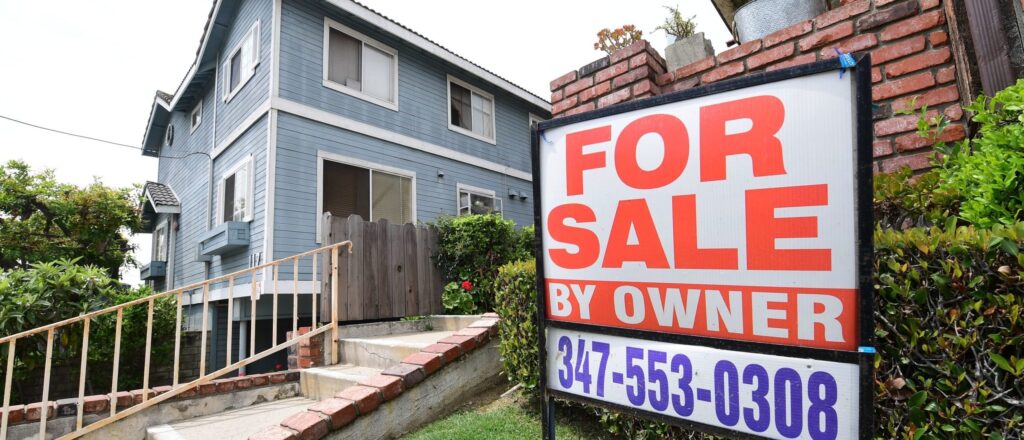The average 30-year fixed-rate mortgage hit a 20-year high on Thursday following interest rate hikes and high inflation, according to mortgage giant Freddie Mac.
A survey of the industry showed that the average mortgage rate was 7.09%, exceeding the peak of 7.08% from November 2022 and climbing to the highest level since 2002, according to a Freddie Mac press release. Americans are opting not to buy homes with existing home sales struggling, totaling 4,160,000 for the month of June, far lower than the number of sales per month in 2021 that remained consistently around 6 million, according to the National Association of Realtors. (RELATED: Biden’s ‘Inflation Reduction Act’ Did Nothing To Bring Down Inflation, Economists Agree)
“The economy continues to do better than expected and the 10-year Treasury yield has moved up, causing mortgage rates to climb,” Sam Khater, the chief economist at Freddie Mac, said in the press release. “The last time the 30-year fixed-rate mortgage exceeded seven percent was last November. Demand has been impacted by affordability headwinds, but low inventory remains the root cause of stalling home sales.”
The median sales price of a house in the U.S. was $416,100 in the second quarter of 2023, declining from an all-time high of 479,500 in the fourth quarter of 2022, according to the Federal Reserve Bank of St. Louis.
Inflation remained elevated in July at 3.2% year-over-year compared to 3.0% in June, having retreated from 9.1% in June 2022. Shelter was the largest contributor to inflation for the month of July, rising 0.4% for the month.
Interest rates reached their highest level since 2001 at the last Federal Open Market Committee meeting, with the federal funds rate being set in the range of 5.25% and 5.50%.
BREAKING: The average interest rate on a 30-year mortgage rises to its highest since 2003, at 7.4%.
2 years ago, buying a $500,000 home with 20% down meant you paid $207,000 in interest over a 30-year mortgage.
Now, buying that same home means you pay $600,000 in interest over… pic.twitter.com/AZJ0Z6r1mM
— The Kobeissi Letter (@KobeissiLetter) August 17, 2023
“Mortgage rates are largely driven by the interest rate on 10-year treasury bonds,” Michael Faulkender, chief economist and senior advisor for the Center for American Prosperity, told the DCNF. “Given that we are seeing yields on those that we have not had for a couple of decades, it is not surprising to see mortgage rates likewise reaching levels unseen in decades.”
“Government policies caused the 40-year high inflation that was realized last year,” Faulkender continued. “The Federal Reserve was late to start normalizing interest rates post-pandemic and is now playing catch-up to remove the pressure on prices. The Fed has indicated that more interest rate increases are likely and this has driven up 10-year Treasury yields, hence mortgage rates.”
The market yield on 10-year Treasury securities, an indicator of investor confidence that correlates closely with mortgage rates, is currently at a 16-year high of about 4.3%, according to CNBC.
All content created by the Daily Caller News Foundation, an independent and nonpartisan newswire service, is available without charge to any legitimate news publisher that can provide a large audience. All republished articles must include our logo, our reporter’s byline and their DCNF affiliation. For any questions about our guidelines or partnering with us, please contact licensing@dailycallernewsfoundation.org.


